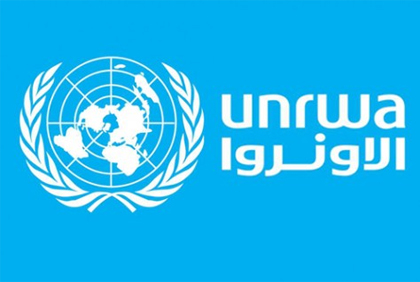Canada has committed more money—up to $100 million over four years—to the United Nations agency responsible for the welfare of Palestinian refugees.
The announcement of new funding to the United Nations Relief and Works Agency for Palestine Refugees in the Near East (UNRWA) came June 26 in a statement from Harjit Sajjan, minister of international development.
The latest allocation is meant to deliver “core programs that support basic education, health, social services and livelihood opportunities and protect the rights of Palestinian refugees,” the statement from Sajjan’s office said.
Canada, it added, is also providing $3 million to UNRWA’s Emergency Appeal for the West Bank and Gaza “to ensure the delivery of humanitarian assistance for basic services,” such as emergency food aid, health services and improved water and sanitation access.
The latest round of funds responds “to the rising needs and deteriorating conditions” faced by Palestinian refugees in the West Bank, Gaza, Syria, Lebanon and Jordan.
The new money is in addition to the $90 million Canada committed to UNRWA from 2019 until now.
The agency has been a magnet for controversy over the years because of its alleged ties to terrorist groups, use of hateful teaching materials in UNRWA-run schools, and reports of corruption in the agency’s administration.
Under former Conservative Prime Minister Stephen Harper, Canada’s contribution to UNRWA dropped to $19 million by 2009, but only to the emergency appeal for food and jobs, and nothing to the general fund, over concerns about the agency’s ties to Hamas.
That year, a study by the Center for Near East Policy Research in Israel found that Hamas, which Canada considers a terrorist group, was elected to run the UNRWA Workers Union and UNRWA teachers association.
The Trudeau Liberals reinstated full funding to UNRWA in 2016.
The following year, Canada and UNRWA signed a joint “Framework for Cooperation” outlining Ottawa’s expectations regarding UNRWA’s reform initiatives, regular monitoring and reporting, compliance with Canadian anti-terrorism requirements, and other oversight measures.
The document called on UNRWA to address “inappropriate” use of social media by its staff and to review curricula in schools the agency runs to ensure they are in line with “UN values and principles, including those that relate to neutrality.”
Sajjan pledged that Canada will “continue to exercise enhanced due diligence for all humanitarian and development assistance funding for Palestinians. This work includes ongoing oversight, regular site visits, a systematic screening process, and strong anti-terrorism provisions in funding agreements.”
In 2021, Canada said it would not suspend funding to UNRWA, pending an investigation into how anti-Israel, pro-violence teaching materials found their way into Palestinian schools.
That stemmed from a report by an Israeli non-profit group which found that teaching materials distributed by UNRWA to Palestinian children in Gaza and the West Bank between November 2020 and January 2021 contained incitement to violence; demonization of Israel, which was erased from maps; endorsements of jihad and martyrdom; the promulgation of “libels and conspiracies;” and failure to promote peacemaking.
Classroom materials referred to Israel solely as “the Enemy” or “the Israeli Occupation,” the Israeli study had found.
UNRWA said it pulled the offending material, saying it had been distributed in error.
Palestinian refugees face high rates of poverty, food insecurity and unemployment, Sajjan noted in his statement. In Syria, for example, 91 percent of Palestinian refugee households live in “absolute poverty.” In Lebanon, more than 89 percent of Palestinian refugees displaced from Syria are “in critical need of sustained humanitarian assistance,” the minister said.
The Centre for Israel and Jewish Affairs (CJIA) said it supports “legitimate Canadian government efforts to assist Palestinians in providing measures such as food security and healthcare.”
However, CIJA remains concerned about “continued incidents of incitement by UNRWA staff, their ongoing support of terrorism, and their development and use of problematic educational materials,” David Cooper, CIJA’s vice-president of government relations, told The CJN.
“For these reasons, we agree with Canada’s enhanced due diligence and other oversight mechanisms to ensure aid is provided to the most vulnerable populations and is neither misappropriated by terror groups nor used to fund hatred,” Cooper added.
In a statement, the Toronto-based Abraham Global Peace Initiative (AGPI) expressed “profound disappointment” over the funding announcement. In light of recent terror attacks against Israelis, the group said it had called for a moratorium on any further funding to the Palestinian Authority and Gaza through UNRWA “until such time as the infamous pay-for-slay program run by the Palestinian Authority is cancelled. The program incentivizes Palestinians to carry out terror attacks against Israelis.”
Canadians for Justice and Peace in the Middle East, which supports the boycott movement against Israel, said it welcomes the renewal of Canada’s funding to Palestinian refugees but is disappointed that the latest pledge represents an annual cut of $5 million.









